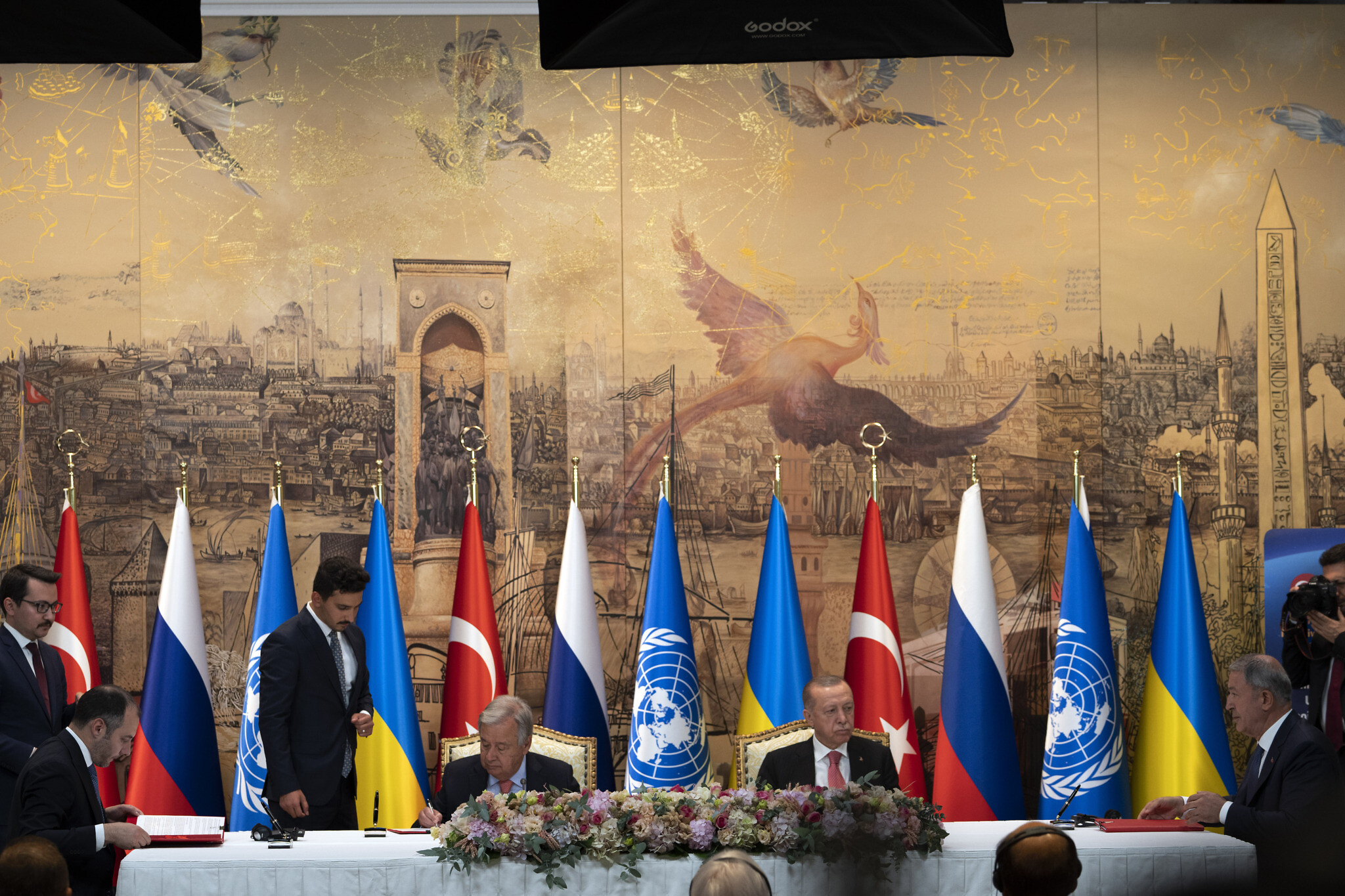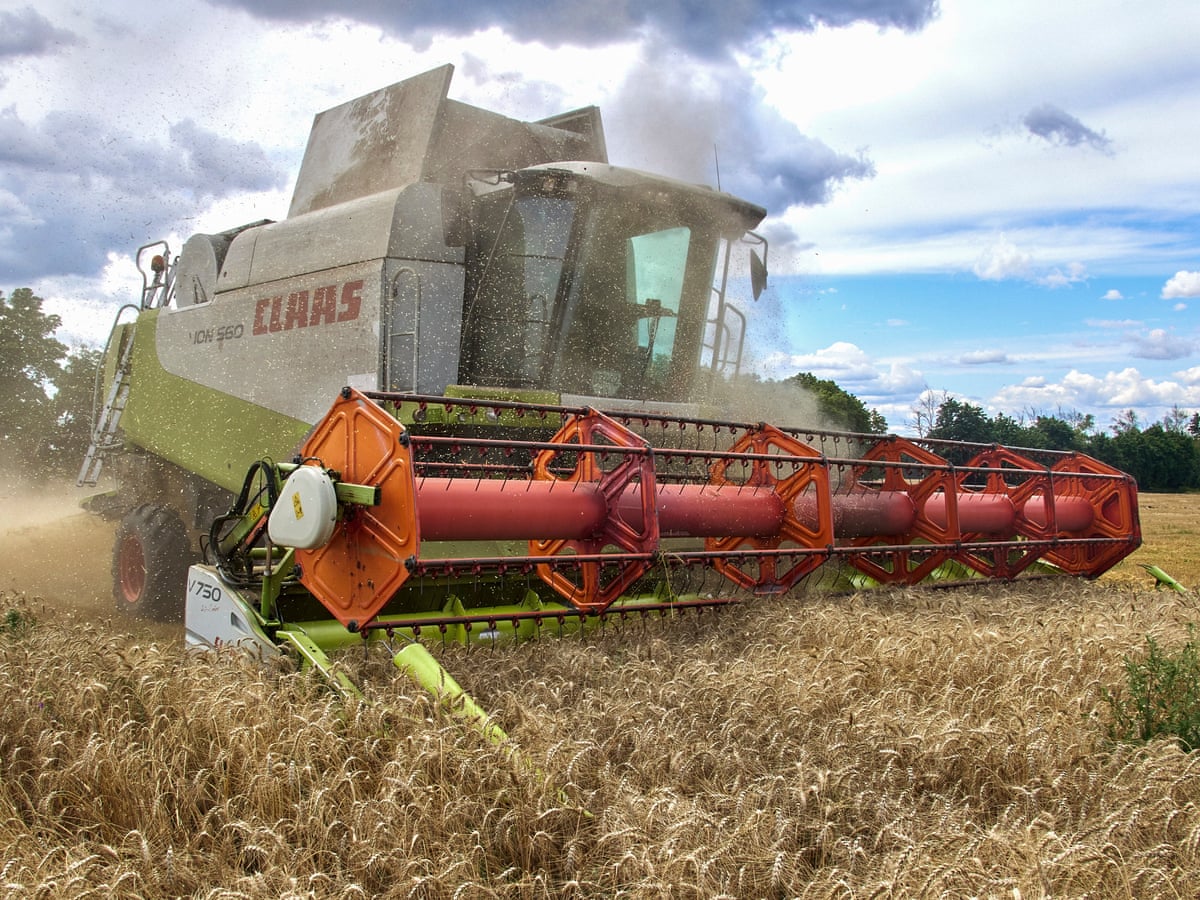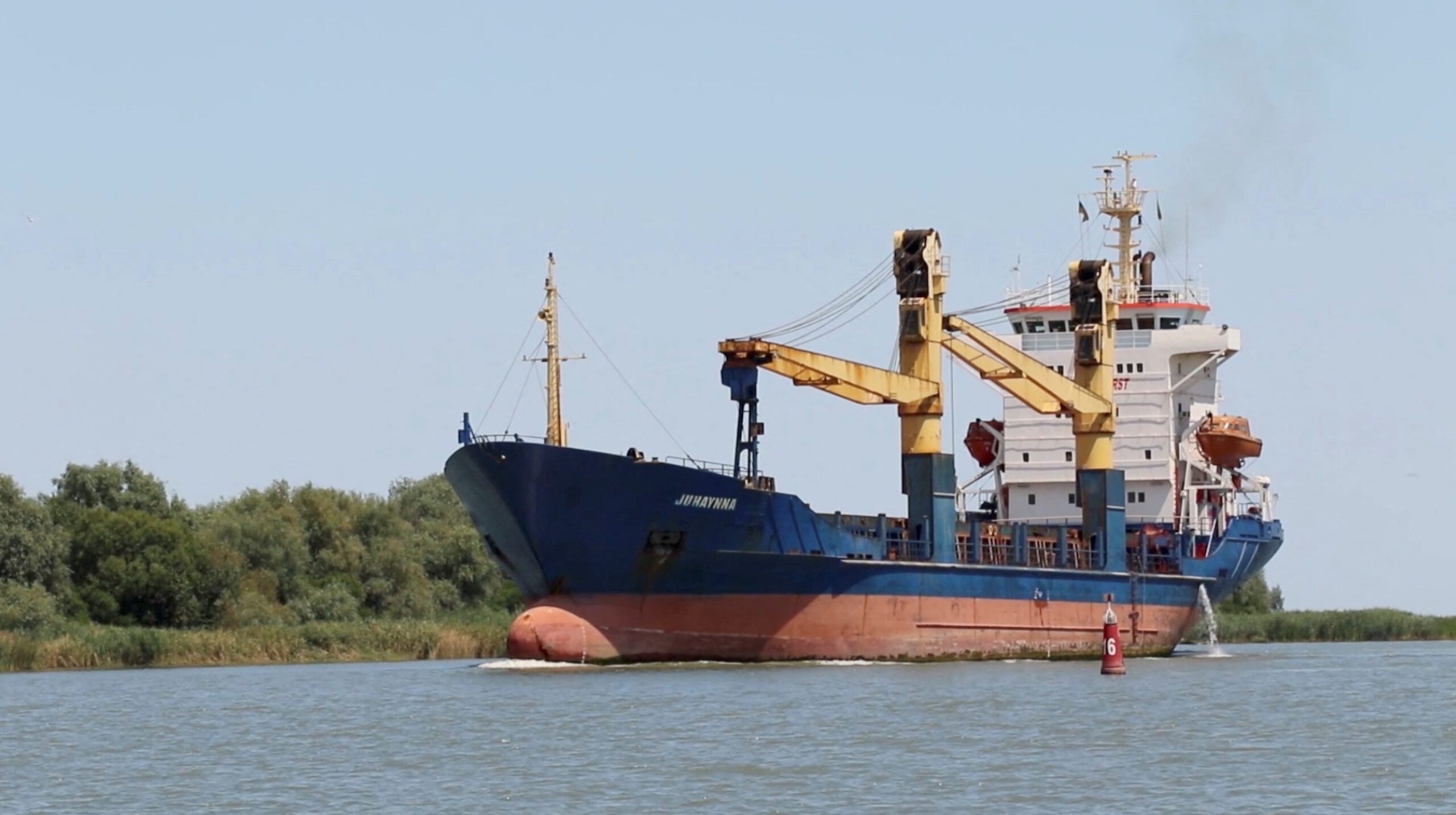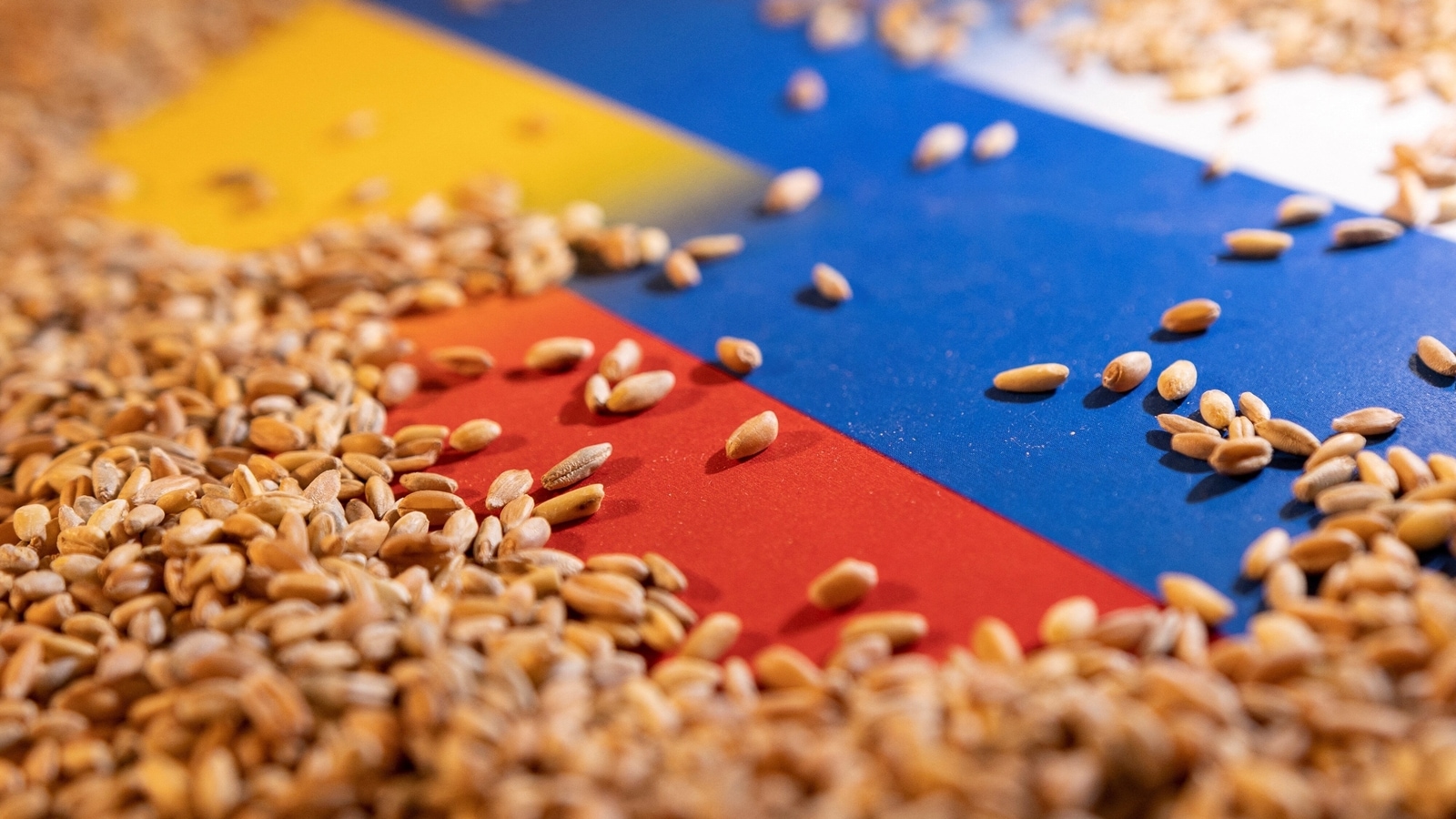Ukraine and Russia Sign Deal to Unlock Grain Exports 2022

Ukraine and Russia Sign Deal to Unlock Grain Exports 2022
A decision between Russia and Ukraine was made on Friday in Istanbul to release more than 20 million metric tonnes of grain imprisoned in besieged Black Sea ports in Ukraine. The pact aims to lower high grain prices and ease the growing global food problem.
The United Nations and Turkey’s help in mediating the agreement allowed for a breakthrough after months of negotiations. The deal, which comes after the U.N. granted Russia assurances that it can sell its grain and fertilizers, provides a way for selling Ukrainian grain outside of the nation.

If the decision stands, it will lessen the severe food shortages that grew worse after Russia entered Ukraine in February. One of the world’s major producers of bread, the invasion of Ukraine had an impact on the entire world economy, escalating the food crisis, causing starvation in Africa, and posing a threat of political turmoil in other countries.
The U.N. secretary general, António Guterres, known the agreement to be the “beacon in the Black Sea” and stated, “This accord did not come easily.”
Some of the most severe global repercussions of Moscow’s attack on Ukraine resulted from President Vladimir V. Putin’s eagerness to block food exports to gain international leverage. This undermined a global food distribution system already tense by pandemic-related interruption and climate change.
Senior United Nations officials predicted that the first grain shipments from Odesa and ports would arrive in a few weeks, bringing five million metric tonnes of Ukrainian grain and other goods to the global market every month. According to the officials, this would open storage space in Ukraine’s silos for recently harvested grain.

Since Russia’s full-scale assault on Ukraine began on February 24, Kyiv and Moscow have seldom reached a consensus. In large part, as a result of Russia’s insistence on a change of governance in Kyiv, peace negotiations held in Belarus month and in March came to naught. Talks in Turkey later in March ended in failure.
A prisoner exchange and the evacuation of a steel mill in Mariupol, where hundreds of Ukrainian soldiers and residents have been imprisoned for 80 days, have been agreed upon by negotiators. However, Friday’s accord was the first event that officials from the warring countries had publicly signed a document.
Stephen E. Flynn, founder and director of the Global Resilience Institute at Northeastern University, praised the Turks for their “elegant approach” and said it was a “major step forward.”
However, he cautioned that it would be challenging to quickly get food to the areas that need it the most. It is challenging to move wheat through the Black Sea when there is little to no confidence between the opposing sides.

It won’t go quickly, he predicted. According to officials, the arrangement of the complete event would end after 120 days but may be renewed on a recurring basis to normalize grain export for the upcoming months.
It explicitly clears that neither the relevant commercial and civilian ships nor the port infrastructure will be harmed. The Russian security guarantees, however, did not cover areas of the Ukrainian ports not used explicitly for the grain, according to a senior U.N. official.
According to the agreement, Ukrainian captains will navigate the grain-laden ships out of Odesa and the close ports of Chernomorsk and Yuzhne using safe routes that the Ukrainian Navy has plotted to avoid mines.
The United Nations officials announced that joint command centres with representatives from Russia, Ukraine, Turkey, and the United Nations would be established in Istanbul on Saturday. Teams from all three countries and the United Nations will collectively enquire about the vessels to make sure that they are not carrying guns back to Ukraine once they have unloaded their grain cargo.

The agreement seemed improbable only two weeks ago, given the fierce hostility between the rival parties and Russia’s apparent unwillingness to ratify it.
However, a major part of the United Nations’ task was persuading commercial shipping and insurance companies that they could export Russian groceries and fertilizers without breaking the sanctions imposed by the United States and the European Union.
Here is how the grain agreement between Russia and Ukraine will operate.
Belgian: The grain agreement Russia and Ukraine made has many moving pieces, not the least of which is the reason that the war is still raging and the level of confidence between the parties is incredibly low. Officials didn’t even believe it was conceivable until last week.
Here are some key facts about the grain situation and possible solutions.
Why was Ukrainian grain trapped in the country?
Following its invasion of Ukraine on February 24, Russia stationed warships off the Black Sea coast of that country. To prevent a Russian naval strike, Ukraine mined those seas. This meant that commercial shipping was prohibited from using the ports used to export grain from Ukraine. In addition, Russia demolished food storage facilities, mined grain fields to prevent harvesting, and pilfered grain stores.
How will the process go?
Ukrainian captains will steer grain-filled ships out of Odessa, Yuzhne, and Chornomorsk. They will navigate the boats to Turkey for clearance before the grain is sent to purchasers all around the world using unmined passageways.
A team of Turkish, U.N., Ukrainian, and Russian officials will inspect the returning ships to ensure they are empty and do not contain any weaponry for Ukraine, a crucial Russian demand. To keep track of the flotillas’ every move, a combined command centre in Istanbul will be promptly established with different representatives from all four parties.
The parties have agreed that the vessels and port infrastructure framework required for their different activities would be protected from violence.
The company is expected to send five million tonnes of grains out each month anytime. The stocks of up to 20 million tonnes should be cleared at that rate in three to four months, given that 2.5 million tonnes have already been conveyed by land and river to Ukraine’s friendly neighbours. As a result, storage facilities will have room for the fresh crop, which is now under progress in Ukraine.

What will be the dangers existing?
The ships will pass through an area of hostilities because no comprehensive cease-fire has been agreed upon. Attacks on the port they use or those close to the boats might disturb the arrangement. A lack of confidence or a dispute between investigators and joint-command personnel would be another concern.
The U.N. and Turkey’s roles are to mediate such disputes immediately and to oversee and uphold the agreement. The U.N. expects that the contract, which has a 120-day expiration date, will be renewed.
Will this instantly end world hunger and lower food costs?
No. Poor food distribution and price manipulation are the leading causes of the ongoing global hunger crisis, affecting different regions of the world annually. Conflict often makes it worse, and climate change has impacted it. The conflict in Ukraine, which provides a major part of the world’s wheat, placed a tremendous strain on the networks that distribute grains, raising prices and escalating the food crisis.

According to officials, the agreement should cause a gradual drop in global grain prices and increase the delivery of wheat to Somalia in weeks, preventing a full-blown famine. However, given how fragile the accord is, it is unlikely that grain markets would quickly return to normal.
How does it benefit Russia?
The agreement should facilitate the sale of wheat and fertilizer, two other key exports from Russia, on the global market. The Kremlin has repeatedly argued that the U.S. and E.U.’s sanctions against it prohibit the export of its resources.
The sanctions don’t apply to those products. Still, private shipping companies, insurers, banks, and other companies have been hesitant to assist Russia in exporting grains and fertilizer out of concern that they could violate the sanctions or risk having their reputations tarnished by doing business with Russia.

The European Union on Thursday published a legal explanation for its sanctions, assuring the public that different banks and other grain-related businesses were not prohibited.
The United Nations claimed that trade from Russia, mainly through the Russian port of Novorossiysk, should pick up speed after receiving comparable promises from the United States.
As a “beacon of hope.”
While the agreement’s specifics are still unknown, it was expected to allow Ukrainian ships to guide ships across mined seas while establishing a limited ceasefire to prevent an attack by Russia. Turkish officials would inspect the packages to rule out the possible chances of sneaking in weaponry.
Observers are keenly studying the pact from around the world to ensure that Russia keeps its end of the bargain. Under the terms of the agreement, Moscow, which accuses Ukraine of laying the mine, is expected to resume its grain exports to the Black Sea.

At the signing on Friday, Erdogan stated that the agreement would leave billions of people from famine. He asked both parties to end the fighting and showed his optimism that the decision would mark a real point.
Erdogan stated, according to a translation, “We are happy to be instrumental in a project that will play a key role in fixing the global food crisis that has been on the table for a long time.”
With his statement that there was now a lighthouse “on the Black Sea,” Guterres struck an upbeat note. A world that requires hope and possibilities more than ever needs “a light of hope [and] opportunity… and relief.”
One of the major exporters and producers of agricultural goods global is Ukraine. The United States is often the leading producer of sunflower meal, oil, and seed, per the United States Department of Agriculture. Additionally, it is the seventh-largest grower of wheat in the world and the leading exporter of sunflowers meal and oil.
Frequent sites for wheat exports are Bangladesh, Pakistan, Indonesia, Egypt, and Turkey. Following the announcement of the settlement, wheat futures on the Paris exchange fell by about 5%.
Edited by Prakriti Arora




